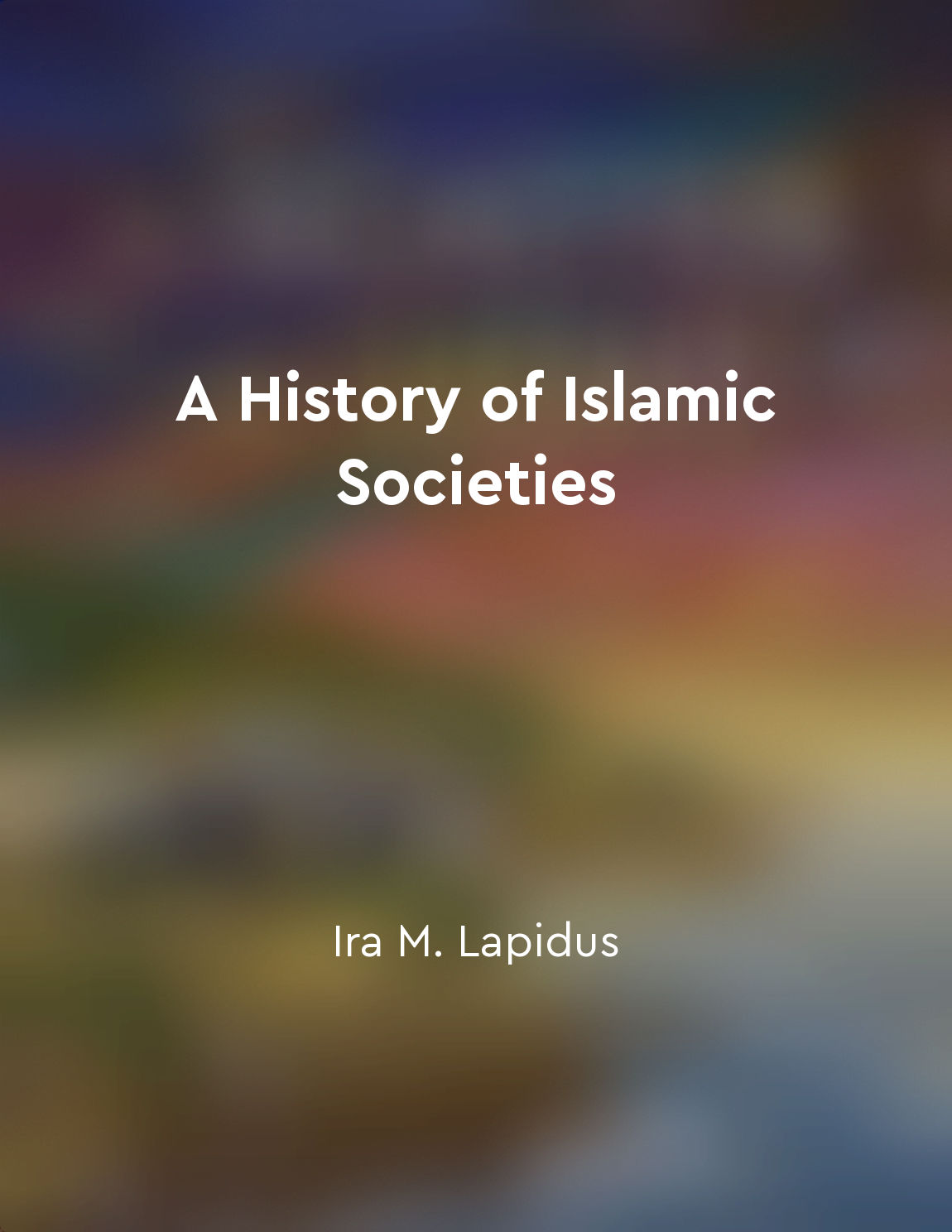Islamic societies were characterized by tolerance towards religious minorities from "summary" of A History of Islamic Societies by Ira M. Lapidus
Islamic societies throughout history have been known for their tolerance towards religious minorities. This is evident in the way that non-Muslim communities were allowed to practice their faith freely within Islamic empires. One example of this tolerance can be seen in the treatment of Jews and Christians in the early Islamic Caliphate. These communities were considered "People of the Book" and were granted certain rights and protections under Islamic law, such as the ability to worship in their own churches and synagogues. Furthermore, Islamic societies often allowed for a level of autonomy for religious minorities to govern their own affairs. For example, in the Ottoman Empire, non-Muslim communities were allowed to have their own legal systems and were largely left to govern themselves as long as they paid their taxes and upheld the laws of the empire. This allowed for a degree of cultural and religious diversity within the empire, which contributed to its overall stability and prosperity. In addition to these legal protections, Islamic societies also often fostered a sense of cultural and intellectual exchange between different religious communities. For example, in places like Al-Andalus in medieval Spain, Muslim, Jewish, and Christian scholars often worked together to translate and preserve ancient texts from Greek and Roman civilizations. This spirit of intellectual collaboration helped to advance learning and knowledge in a way that benefitted all members of society, regardless of their religious background.- The tolerance shown towards religious minorities in Islamic societies can be seen as a reflection of the broader values of justice, compassion, and respect for diversity that are inherent in Islamic teachings. This tradition of tolerance has been a defining characteristic of Islamic societies throughout history and has helped to create vibrant and diverse communities that have enriched the cultural and intellectual life of the Muslim world.
Similar Posts
Ibn Kathir's interpretations are rooted in the teachings of the Prophet Muhammad
The interpretations provided by Ibn Kathir in his renowned tafsir are firmly grounded in the teachings and traditions of the Pr...
Hadith are used to clarify ambiguous meanings in the Quran
Hadith play a crucial role in expounding on the Quranic text by shedding light on any ambiguous or unclear meanings found withi...
Establishment of Constantinople as the new capital
The establishment of Constantinople as the new capital marked a significant turning point in the history of the Roman Empire. T...

Oil wealth transformed the economic landscape of Islamic societies
The discovery of oil in the Middle East in the early 20th century marked a significant turning point in the economic landscape ...

